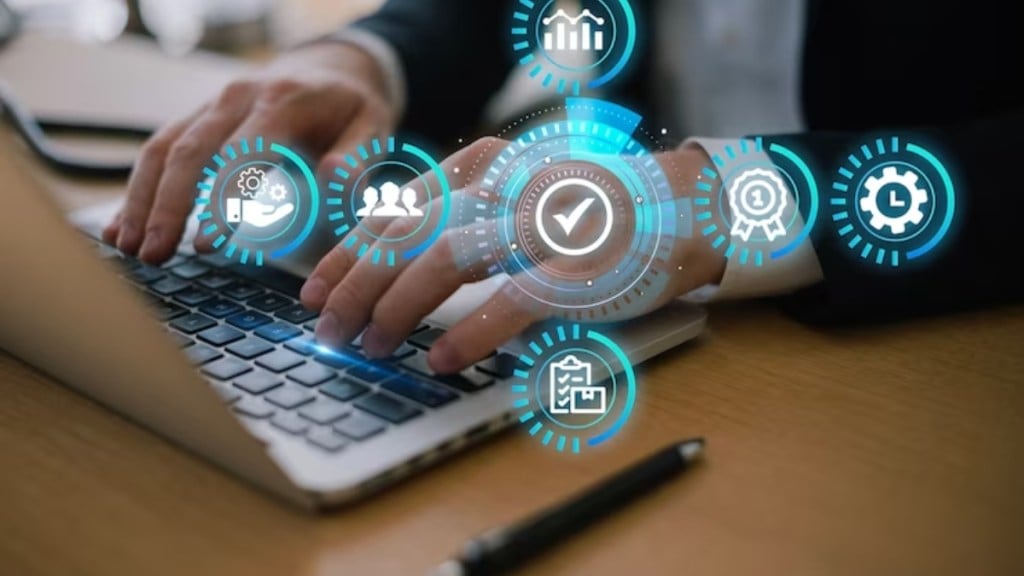By Prem Das Maheshwari
Crafting assessments that authentically reflect students’ skills, knowledge and abilities is a challenging endeavor. The desire for intentionally designed assessments often clashes with the misalignment between assessment goals and students’ understanding of their purposes. In the pursuit of deeper learning, which involves grasping and addressing the complexities of a subject while making connections across various contexts, the role of learning management systems (LMS) becomes paramount.
Understanding Deeper Learning
Deeper Learning goes beyond surface-level understanding. It signifies the ability to comprehend and navigate the intricate elements of a subject or topic, establishing connections within and across contexts. This can range from within the same class to other disciplines, the student community or even the broader global landscape. It is a holistic approach to education that cultivates mastery, identity and creativity as observed outcomes of learning.
What Is a Learning Management System?
An LMS emerges as a potent tool in the realm of education, providing an online management platform for teaching and learning. This software facilitates the delivery of large-scale education or training content for schools and businesses. The inherent strengths of an LMS lie in its user-friendly interface and customizable features, offering educators the ability to enrich course content and enhance online learning management with flexibility, credibility and scalability.
The Role of an LMS in Designing Intentionally Crafted Assessments
Ease of Use and Customization
What differentiates a good LMS from others are specific features like a user-friendly interface and extensive customization options. Educators can leverage these features to design assessments that align with their specific teaching goals. In addition to a user-friendly interface and extensive customization options, a high-quality LMS also prioritizes seamless integration with various content formats and third-party tools. This ensures that educators have the flexibility to incorporate diverse educational materials, multimedia content, and interactive elements into their courses, fostering a more engaging and dynamic learning environment for students.
Relevance and Real-World Application
Deeper Learning is cultivated through engagement with grade-level work that is relevant and has real-world applications. LMS tools empower educators to incorporate real-world scenarios into assessments, making the learning experience more applicable. This not only enhances student understanding but also bridges the gap between theoretical knowledge and its practical implications.
Interactivity and Engagement
LMS platforms provide interactive features that foster student engagement. These tools, from multimedia elements to discussion forums, encourage students to participate in their learning journey actively. Assessments designed within an LMS can include interactive parts, ensuring that students are not passive recipients but active contributors to their learning process.
Scalability and Consistency
With the ability to handle large-scale educational content, LMS tools ensure scalability in assessment delivery. Moreover, the standardized nature of assessments within an LMS guarantees consistency across various classes, ensuring that each student is evaluated based on the same set of criteria. This contributes to fair and unbiased assessments.
Innovative LMS Tools in Schools
Educational institutions are increasingly adopting innovative LMS tools to structure and enhance their assessment strategies. By doing so, they are not only aligning assessments with deeper learning goals but also streamlining the overall learning experience. Using LMS tools enables schools to create a more structured and effective assessment framework, contributing to long-term educational goals.
In the context of schools in India, an LMS can help in personalized learning and skill development in line with the National Education Policy (NEP) 2020, which aims to revamp the education system in India and make it more inclusive, equitable and futuristic.
Takeaway
Moving forward, the challenge lies in further harnessing the potential of LMS tools to continually refine assessment practices, ensuring they remain dynamic, responsive, and in harmony with the evolving needs of both educators and learners in our rapidly changing educational ecosystem. This way forward involves a continued commitment to leveraging technology as a catalyst for deeper learning, empowering students to navigate the complexities of the modern world with mastery, identity, and creativity as the enduring outcomes of their educational journey.
The author is regional director, South Asia at D2L. Views are personal.
